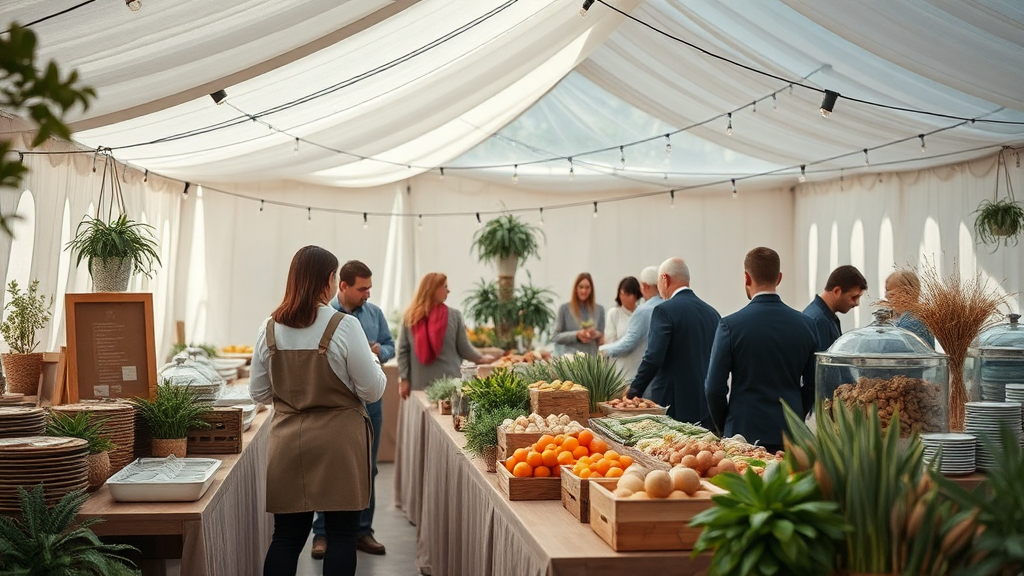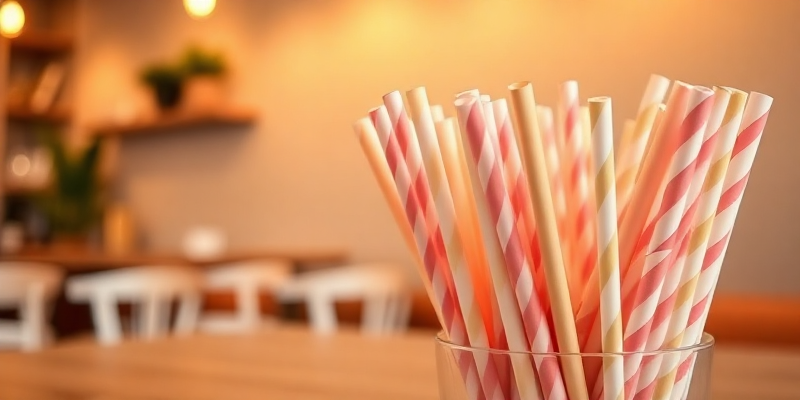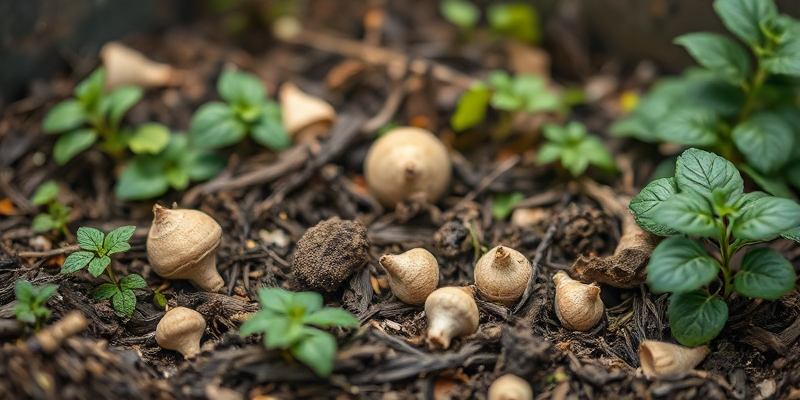default-keyword: Sustainable & Compliant Solutions for B2B Buyers

# Sugarcane Straws: Sustainable & Compliant Solutions for B2B Buyers
Introduction: Plastic Bans and Sugarcane Straw Benefits

Picture this: It’s Monday morning, and you’ve just received an email notification about your city’s new single-use plastic ban taking effect in 60 days. As a busines owner in the food service industry, you’re suddenly faced with replacing thousands of plastic straws that your customers use daily. Sound familiar?
This scenario is playing out acros the globe as municipalities, states, and entire countries implement restrictions on single-use plastics. In the US alone, over 30 states have enacted or proposed legislation to limit plastic straws, while the EU’s Single-Use Plastics Directive has already banned many disposable plastic items acros Europe.
For businesses caught in this regulatory wave, the transition can seem daunting. The good news? Sustainable alternatives like sugarcane straws offer an elegant solution that satisfies both compliance requirements and customer expectations.
Sugarcane straws are made from bagasse—the fibrous byproduct left after extracting juice from sugarcane stalks. Instead of this valuable material being burned or discarded, it’s transformed into functional, eco-friendly products that perform remarkably similar to traditional plastic options.
What makes sugarcane straws particularly appealing for businesses is their familiar look and feel. Unlike paper straws that can become soggy within minutes, sugarcane straws maintain their structure throughout use, providing a customer experience that doesn’t feel like a compromise. They’re sturdy enough for thick smoothies yet elegant enough for upscale cocktails.
The beauty of sugarcane straws extends beyond their functionality. They represent a complete lifecycle solution: grown as a renewable resource, manufactured using agricultural byproducts, used by consumers, and then returned to the earth through composting. This circular economy approach resonates with today’s environmentally conscious consumers who increasingly make purchasing decisions based on a brand’s sustainability commitments.
Regulatory Compliance: Certifications for Sugarcane Straws

In today’s complex regulatory landscape, compliance isn’t just about avoiding fines—it’s about building customer trust and protecting your brand reputation. For food service operations, using products with proper certifications is non-negotiable.
Sugarcane straws stand out in the sustainable alternatives market by offering comprehensive certification options that meet rigorous global standards. The most important of these is FDA compliance, which ensures materials are safe for food contact. According to the FDA{rel=”nofollow”}, all food-contact substances must be manufactured under specific conditions to prevent contamination—a requirement that quality sugarcane straw suppliers like NatureBioEco rigorously meet.
For businesses operating internationally, LFGB certification (German Food, Articles of Daily Use and Feed Code) provides an additional layer of compliance that often exceeds FDA requirements in terms of testing for harmful substances. This dual certification approach ensures your busines can confidently serve customers acros multiple markets without worrying about regulatory variations.
The financial impact of non-compliance can be severe. A striking statistic from the Consumer Brands Association reveals that businesses face an average of $267,000 in fines for each violation of food contact material regulations—not counting the cost of product recalls, legal fees, and damaged brand reputation.
Discover FDA-certified individually wrapped straws that provide both safety compliance and convenience for your customers. These individually wrapped options are particularly valuable for healthcare settings, delivery services, and businesses where hygiene assurance is paramount.
Compliance extends beyond certification to include proper labeling and marketing claims. When you partner with established sugarcane straw wholesale suppliers, you receive documentation that supports your sustainability claims and helps you avoid greenwashing accusations that could damage your brand’s credibility.
How Sugarcane Straws Compare to Other Eco Alternatives

Understanding the landscape of sustainable straw options helps businesses make informed decisions that balance environmental benefits with practical considerations. Let’s compare the leading alternatives:
| Feature | Şeker Kamışı Pipetleri | Kağıt Pipetler | PLA Straws | Metal Straws |
|---|---|---|---|---|
| ——— | —————— | ————– | ———— | ————– |
| Durability in drinks | 2-3 hours | 30-60 minutes | Similar to plastic | Indefinite |
| Home compostability | Yes (30-90 days) | Yes (30 days) | HAYIR | N/A (reusable) |
| Industrial compostability | Evet | Evet | Evet | N/A (reusable) |
| Customer experience | Natural feel, no taste | Can become soggy | Similar to plastic | Temperature conductive |
| Price point (B2B bulk) | Ilıman | Low-moderate | Ilıman | High initial investment |
| Özelleştirme Seçenekleri | Color, printing, size | Extensive printing | Limited | Engraving |
| Carbon footprint | Very low | Düşük | Ilıman | High production, low over time |
What sets sugarcane straws apart is their balanced performance acros these critical factors. While paper straws may win on initial cost, they often result in customer dissatisfaction and increased usage (customers taking multiple straws). PLA (polylactic acid) straws, though marketed as “biodegradable,” typically require industrial composting facilities that many municipalities lack.
A remarkable data point from the Sustainable Packaging Coalition shows that sugarcane-based products decompose 78% faster in home composting conditions than PLA alternatives, making sustainable sugarcane straws for B2B genuinely end-of-life friendly.
For businesses like coffee shops or smoothie bars that require straws that can stand up to thicker beverages, sustainable coffee straws made from sugarcane provide excellent structural integrity without the environmental drawbacks of plastic.
The versatility of sugarcane extends to different applications as well. Whether you need eco-friendly cocktail straws for drinks or wider options for smoothies, the material performs consistently acros various formats.
Top Busines Benefits of Switching to Sugarcane Straws
Beyond compliance and environmental considerations, sugarcane straws offer tangible busines advantages that contribute to your bottom line and brand positioning.
### Enhanced Brand Perception
According to a recent NYU Stern School of Busines study, products marketed as sustainable grew 7.1 times faster than those that weren’t—and commanded an average price premium of 39.5%. When customers see your busines using sugarcane straws, they associate your brand with forward-thinking values and responsible practices.
### Cost-Effectivenes Over Time
While the unit price of sugarcane straws may be higher than conventional plastic, the total cost equation changes when you factor in:
- Avoidance of potential plastic ban fines (which can exceed $10,000 per day in some jurisdictions)
- Marketing value of sustainable practices
- Customer loyalty and preference
- Compatibility with existing waste systems
For hotels and restaurants, sugarcane straw cost-effectivenes becomes particularly apparent when considering the entire customer experience. Guests increasingly expect sustainable options, and meeting these expectations drives repeat busines and positive reviews worth far more than the incremental cost difference.
### Customization Opportunities
Custom sugarcane straws for B2B offer unique branding opportunities. From printed logos to custom colors, these products extend your brand presence through a touchpoint that customers interact with directly. This “functional advertising” creates hundreds of brand impressions daily at a fraction of the cost of traditional advertising.
### Supply Chain Resilience
Diversifying away from petroleum-based products helps insulate your busines from oil price volatility and supply chain disruptions. Sugarcane production is widely distributed geographically, creating a more stable supply network than fossil fuel-dependent alternatives.
Sugar cane straws for B2B offer the durability and compliance your busines needs while providing these additional strategic advantages that contribute to long-term busines succes.
Environmental Impact: Why Sugarcane Straws Win
The environmental case for sugarcane straws goes far beyond simple plastic replacement. These products represent a fundamentally different approach to resource utilization and end-of-life management.
Consider this eye-opening statistic from the Environmental Protection Agency: the average plastic straw takes over 200 years to decompose, while sugarcane straws fully biodegrade in home composting conditions within 30-90 days. This represents a 99.9% reduction in environmental persistence.
The carbon story is equally compelling. The United Nations Environment Programme{rel=”nofollow”} research indicates that plant-based alternatives like sugarcane can reduce greenhouse gas emissions by up to 80% compared to their plastic counterparts when accounting for full lifecycle analysis. This is because:
1. Sugarcane actively captures carbon during growth
2. Production utilizes agricultural waste that would otherwise be burned
3. End-of-life decomposition releases significantly les methane than landfilled plastics
Home compostable sugarcane straw distributors provide a true circular economy solution. After use, these straws can be composted in backyard systems, creating nutrient-rich soil amendments rather than persistent waste or microplastics.
The water impact is substantial as well. Sugarcane is predominantly grown in tropical regions with abundant rainfall, resulting in a water footprint approximately 60% lower than corn-based PLA alternatives and dramatically les than petroleum-based plastics that require water-intensive extraction and refining processes.
Case Study: Sugarcane Straw Succes in Action
When the Oceanic Hotel Group decided to eliminate plastic straws acros their 43 properties in 2021, they faced significant challenges. With over 3.2 million straws used annually, they needed a solution that would maintain guest satisfaction while meeting their sustainability goals.
After testing multiple alternatives, they partnered with NatureBioEco to implement a comprehensive sugarcane straw program tailored to different beverage services acros their properties:
- Branded wrapped straws for in-room dining and poolside service
- Unwrapped sugarcane straws at bars and restaurants
- Wider diameter options for smoothie bars and specialty drinks
- Cocktail-sized varieties for their signature drinks
The results were impressive:
- 92% positive guest feedback (compared to 34% with paper alternatives)
- Complete elimination of 3.2 million plastic straws annually
- 76% reduction in straw waste by volume due to composting integration
- $142,000 in avoided compliance costs from plastic ban regions
- Unexpected 23% increase in specialty drink orders where sugarcane straws were prominently featured
The program’s succes hinged on staff training and guest communication. Each property displayed small table cards explaining the environmental benefits of sugarcane straws, turning a necessary operational change into a positive brand story that resonated with guests.
“The durability was key,” noted Marcus Chen, Food and Beverage Director. “Unlike paper straws that degraded before guests finished their drinks, sugarcane straws maintained their structure throughout the entire beverage experience, eliminating complaints and requests for multiple straws.”
Sıkça Sorulan Sorular
- How long do sugarcane straws last in hot and cold drinks?
- Sugarcane straws perform exceptionally well in both hot and cold beverages, maintaining their structure for 2-3 hours in most drinks. They won’t get soggy like paper alternatives, making them ideal for everything from iced coffee to hot tea. Their natural insulation properties also make them comfortable for sipping hot beverages.
- Are sugarcane straws more expensive than plastic straws?
- While the unit price is typically 2-3 cents higher than conventional plastic straws, the total cost equation often favors sugarcane when considering regulatory compliance, waste management savings, and customer preference. Many businesses report that the marketing value and customer goodwill generated by sustainable practices offset the incremental cost difference.
- Can sugarcane straws be customized with our logo?
- Absolutely! Sugarcane straws can be customized with your logo, brand colors, and even messages along the shaft. The natural material takes printing well, and customization minimums are typically lower than you might expect for sustainable products—usually starting around 25,000-50,000 units for custom printing.
- How should we dispose of sugarcane straws?
- The beauty of sugarcane straws is their flexible end-of-life options. They can be composted in home composting systems, sent to industrial composting facilities, or even disposed of in regular waste where they’ll biodegrade much faster than plastic alternatives. For maximum environmental benefit, composting is recommended.
- What certifications should I look for when buying sugarcane straws?
- Look for FDA compliance for food safety, LFGB certification for international standards, and proper compostability certifications (look for “home compostable” rather than just “biodegradable”). Reputable sugarcane straw wholesale suppliers will readily provide documentation for all applicable certifications.
- How should we store sugarcane straws?
- Store sugarcane straws in a cool, dry place away from direct sunlight. While they’re more moisture-resistant than paper straws, keeping them in their original packaging until use will maintain optimum quality. They typically have a shelf life of 2+ years when properly stored.
- Can individually wrapped sugarcane straws be composted with the wrapper?
- This depends on the wrapper material. NatureBioEco offers options with compostable wrappers that can be composted along with the straw. Always check with your supplier to confirm wrapper materials and proper disposal methods.







